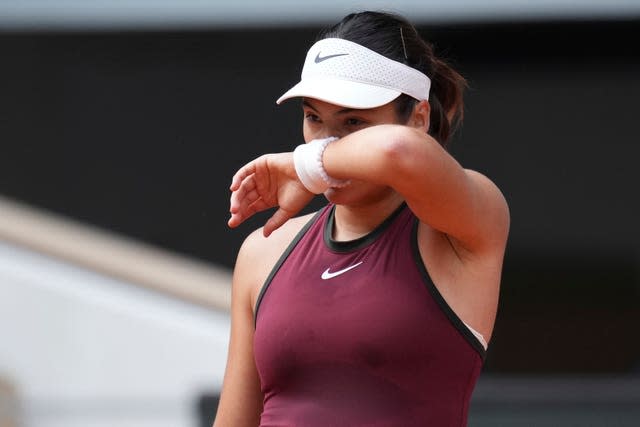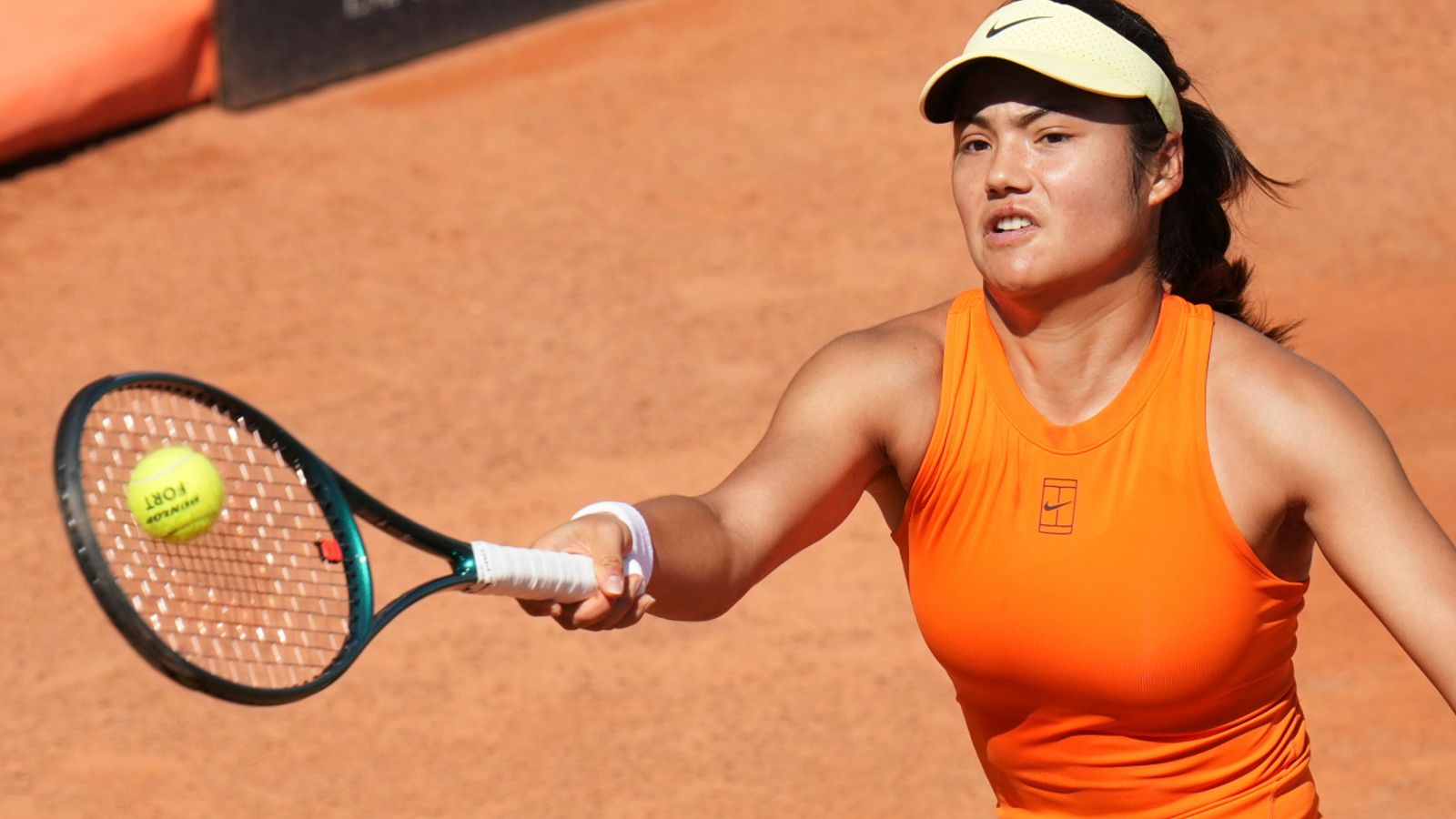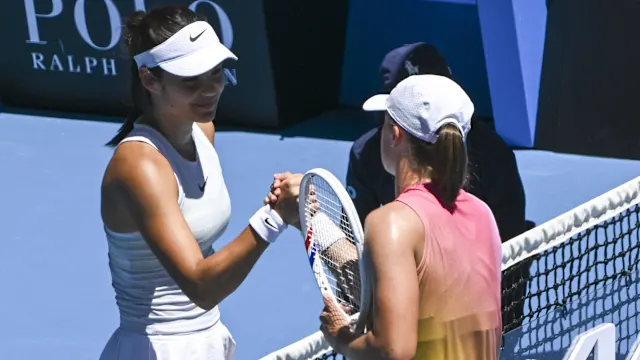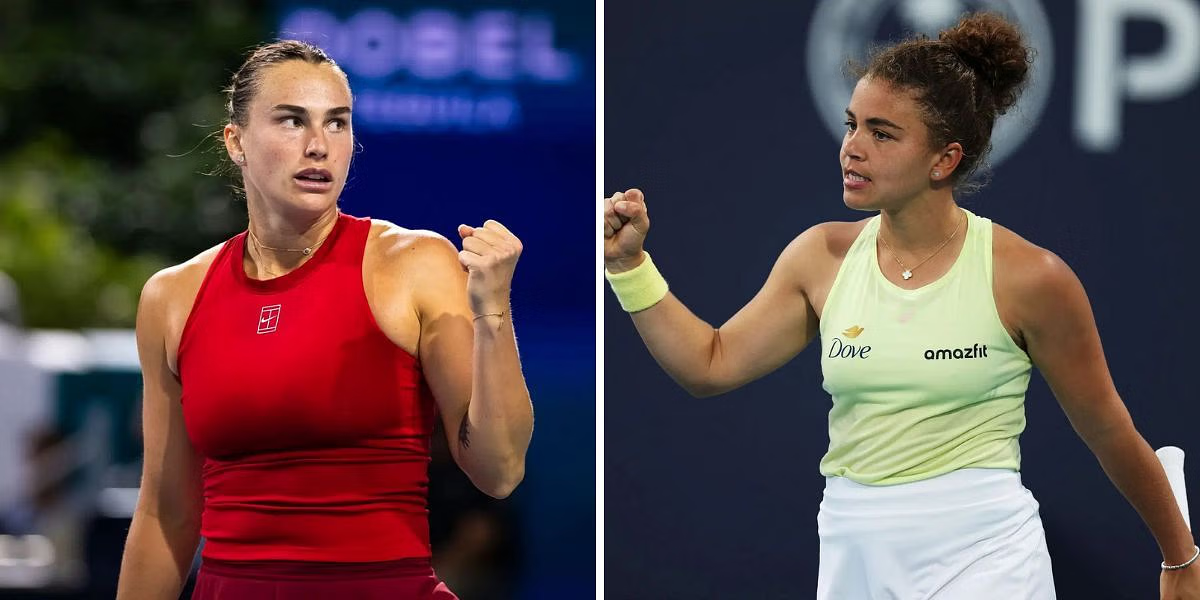When Emma Raducanu stunned the tennis world at the 2021 US Open, she didn’t just win a Grand Slam—she ignited a global conversation about youth, talent, and potential. At 18, with no tour-level match wins before that summer, Raducanu rocketed from relative obscurity to overnight stardom. But with meteoric rises come sharp scrutiny—and over the past few seasons, the British star has found herself battling not just opponents, but media narratives questioning her motivation, focus, and even her love for the game.
Now, one of her early mentors, Mark Petchey, has spoken out in defense of Raducanu’s work ethic while also offering a stark warning: the tennis world has evolved dramatically since her fairy-tale triumph. And if she wants to reclaim her place at the top, the battle will require more than talent—it will demand grit, reinvention, and unwavering belief.
🎙️ Mark Petchey: The Voice of Experience
Petchey, who coached Raducanu during a critical developmental period, knows the demands of professional tennis both on court and in the public eye. He’s also the former coach of Andy Murray, so he understands the weight of British expectations.
Speaking recently about Raducanu’s journey post-US Open, Petchey rejected the popular narrative that she lacks work ethic or commitment. In fact, he claims, “Emma trains harder than most. She’s meticulous, detail-oriented, and wants to get better. The idea that she’s distracted or not serious is just lazy commentary.”
But Petchey also didn’t sugarcoat the reality: the WTA landscape has shifted. “The depth is unbelievable now. There are 17-year-olds playing like veterans and veterans playing like they’re 25. It’s not enough to be talented. You have to evolve constantly.”
🎾 A Post-US Open Reality Check
For Raducanu, that message lands with undeniable truth.
Since lifting the trophy in New York without dropping a set, she’s faced a carousel of coaching changes, nagging injuries, and inconsistent performances. Critics have zeroed in on her commercial success—Lucrative endorsements with global brands like Dior and Porsche—as evidence she’s gone ‘off-track’. But is that fair?

Petchey doesn’t think so.
“She won a Grand Slam as a teenager. Of course, brands came calling. But that doesn’t mean she stopped being an athlete. If anything, the pressure became heavier. Every practice, every match, every Instagram post—it’s all analyzed. She didn’t just win the US Open. She inherited a microscope.”
📈 The Game Has Changed—So Must Emma
In Petchey’s eyes, the biggest obstacle for Raducanu isn’t fame or focus—it’s the evolution of the women’s game itself. Since 2021, a crop of new stars have emerged: power-hitters like Aryna Sabalenka, tacticians like Iga Swiatek, and fearless teens like Mirra Andreeva. The margins are thinner, and the pace is relentless.
“In 2021, Emma had this perfect storm: she was fearless, unknown, and played lights-out tennis. But now, everyone knows her game. They prepare for her. They target her.”
This isn’t a slight—it’s reality. Tennis is an arms race. While Raducanu has been nursing injuries or searching for the right coach-player chemistry, others have surged ahead with clear strategies, steady mentorship, and tour-level consistency.
If she’s to climb back, she’ll need to find not just form, but an edge.
🧠 Mental Fortitude: Still Her Greatest Asset?
What Petchey emphasizes—and what most of the public misses—is that Raducanu’s greatest weapon is her mind. Her composure under pressure at the 2021 US Open was borderline superhuman. No nerves. No panic. Just cool execution.
That mindset hasn’t vanished. It’s just buried under layers of expectation, injury rehab, and the chaos of adapting to a full-time tour life.
“She’s still that same competitor,” Petchey insists. “She still hates losing. She still believes she can beat anyone. But belief takes hits when your body isn’t cooperating or when results don’t match your effort.”
For fans and pundits, it’s tempting to label her as a one-hit wonder. But that thinking ignores the complexity of transitioning from surprise champion to consistent top-tier athlete.
🔁 Reinvention: The Key to Raducanu 2.0
The blueprint for reinvention isn’t unique to Emma. Think about players like Andre Agassi or Simona Halep. They had rollercoaster early years before finding stability and confidence later in their careers. Reinvention is not only possible—it’s common.
Petchey hints that the next stage for Raducanu will require patience, physical resilience, and the right coaching setup—one that aligns with her analytical, perfectionist nature.
“She’s not looking for a cheerleader. She wants someone who challenges her, who sees the game at a granular level. But she also needs continuity. Great things rarely come from short-term partnerships.”
Her coaching carousel has raised eyebrows, but maybe it reflects her high standards more than instability.
🧱 Building Back Brick by Brick
After undergoing surgeries in 2023 and a long rehabilitation stretch, Raducanu has slowly been reintroducing herself to the tour in 2025. The signs are promising—fluid movement, sharper decision-making, and that signature backhand beginning to find its range again.
But Petchey is adamant: expectations must be recalibrated.
“This isn’t about winning the next Slam. It’s about building a foundation. Get 20 matches in. Win ugly. Stay healthy. Let the rhythm return.”
That pragmatic approach might not make headlines, but it’s the right mindset. In a sport that often demands overnight success, Raducanu needs to focus on long-term excellence.
🇬🇧 Still Britain’s Best Hope?
The British tennis spotlight is a double-edged sword. On one hand, Raducanu’s success has already inspired a new generation of players across the UK. On the other, her every move is dissected by media and armchair critics who forget she’s only 22.
Still, there’s a reason why fans haven’t given up. There’s a reason why Petchey—and other insiders—continue to vouch for her.
She has the tools. The timing just needs to align again.
📣 Social Buzz: Why Fans Still Believe
Across social media, the sentiment around Raducanu has evolved from obsession to polarization. Some hail her as a marketing machine who lost her way. Others see her as a young woman navigating immense pressure with grace.
But one thing remains true: she still moves the needle.
Whether she wins or loses, people care. People watch. And that kind of magnetism can’t be taught.
With Wimbledon on the horizon, many are hoping for a comeback chapter. She’s back in training, focused, and determined to prove that her US Open wasn’t a fluke—it was just the first chapter.
🔮 The Road Ahead: What Comes Next?
If Raducanu is to rise again—and make no mistake, she can—it will be a story of reinvention, not redemption. She doesn’t owe anyone an apology for her early success. What she needs is time, trust in her process, and a little bit of the fire that lit up New York in 2021.

As Petchey puts it, “Emma’s story isn’t finished. Not even close. She’s a player for the long haul, and when it all clicks again, we’ll be reminded why she was so special in the first place.”
🧩 Final Word: Betting on Belief
In a sport built on comebacks, nothing is more dangerous than a motivated, underestimated champion. Raducanu may be down in the rankings, but she’s far from out. She’s a puzzle still assembling itself. And when the final pieces fall into place, don’t be surprised if the tennis world is left stunned again.
Because greatness isn’t about how you rise the first time. It’s about how you rise after falling—and Emma Raducanu still has more to prove, more to fight for, and more tennis magic left to give.


